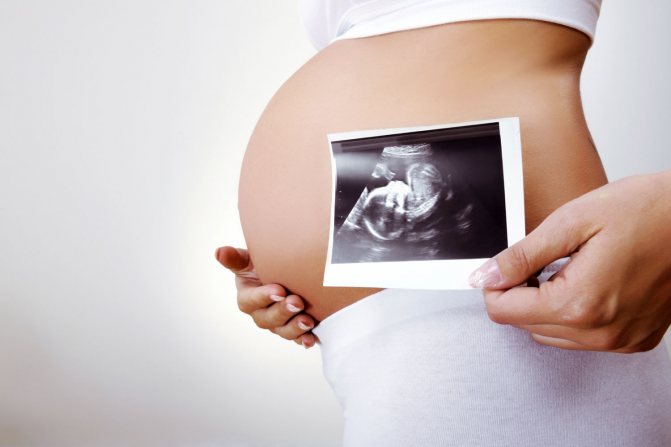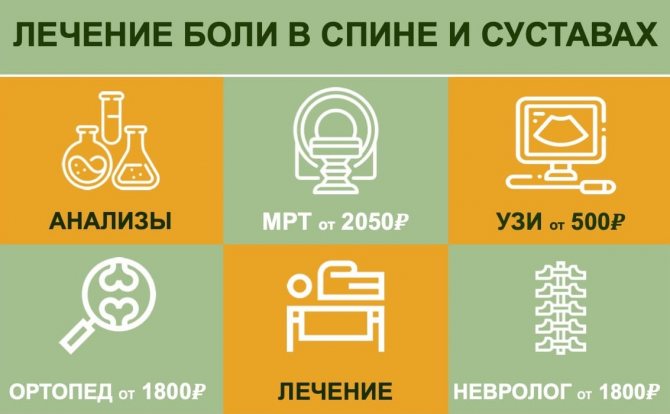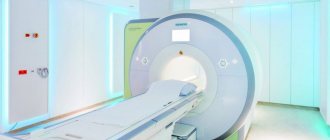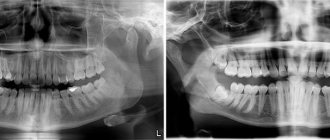Pregnancy is such an important time in a woman’s life when she strictly weighs the pros and cons of every medical recommendation and tries to postpone all examination and treatment activities until the postpartum period. MRI during pregnancy is performed only when indicated, although to date there are no facts that could indicate the danger of the procedure for the fetus.
Can the examination have any effect on the child?
To answer the question whether MRI is possible during pregnancy, you need to remember the principle of operation of a magnetic resonance imaging scanner. A conventional computed tomography (CT) scanner produces images using X-rays. Radiation exposure poses an objective danger to the developing body of the unborn baby. Unlike CT, magnetic resonance imaging works on a completely different principle - due to the influence of an electromagnetic field, which eliminates radiation exposure to the body of the fetus and the pregnant woman. Due to its high safety and excellent information content, MRI is not contraindicated for pregnant women. On the contrary, this is one of the most harmless examination methods that can be used during this period.
Is MRI safe during pregnancy?
Magnetic resonance imaging is based on the ability of water molecules in tissues to change direction in space under the influence of a high-intensity magnetic field. Radio waves return them to their original state, which is accompanied by the release of energy. The tomograph's sensors record the response, and a computer program converts the signal into an image. The result of scanning is layer-by-layer images of the studied area in three mutually perpendicular planes.
MRI is recognized as an informative and safe diagnostic procedure. Unlike X-rays or CT scans, scanning does not involve radiation and therefore does not carry the risk of uncontrolled cell division. Research has established that exposure to a magnetic field and radio waves for 1 hour can provoke an increase in tissue temperature, but not more than 1 degree. During the use of magnetic resonance diagnostics, there were no reports of adverse consequences of the procedure.
To the question: “Can pregnant women undergo an MRI or not?” — it is impossible to answer unambiguously. No special studies aimed at assessing the effect of the procedure on the mother’s body and the condition of the fetus were conducted. However, potential risks arise only in case of contraindications to the procedure, namely:
- in the presence of metal structures in the body (pins, knitting needles, etc.);
- implanted electronic devices (pacemaker, defibrillator, insulin pump, etc.).
Claustrophobia is considered a relative contraindication. If a pregnant woman is afraid of confined spaces, she may experience anxiety. Stress is extremely undesirable when carrying a child, so it is better to conduct research on open-type tomographs. In the absence of contraindications, scanning after 13 weeks is considered a harmless procedure. Whether it is possible to perform an MRI during pregnancy or whether it is worth resorting to other diagnostics is determined by the attending physician. The doctor takes into account the patient’s condition, the presence of contraindications, and the seriousness of the clinical situation.
Indications for the procedure
The question of whether it is possible to do an MRI during pregnancy clearly has an affirmative answer, however, any diagnostic examination must be performed taking into account the indications. Reasons for performing an MRI scan of certain areas of the body may include:
- Suspicion of serious fetal malformations (for example, signs of developmental anomalies according to ultrasound data) to decide on termination of pregnancy;
- The position of the fetus in the uterus is inconvenient for visualization using ultrasound;
- Other problems with fetal visualization, for example, due to excess subcutaneous tissue on the abdomen in obesity.
Despite the general safety of the method, doctors still try to do MRI during early pregnancy only for emergency indications. The reason is the increased vulnerability of the fetus to a huge number of external factors. The fetus in the first trimester of pregnancy is especially susceptible to teratogenic factors due to the active development of the rudiments of all organs and systems from a very small number of dividing cells. The magnetic field of modern tomographs can be considered safe for the embryo. But for obvious reasons, a thorough study of the method on a statistically significant number of women in the first trimester of pregnancy is impossible. Conclusion: pregnant women can undergo MRI, but in the first months it is advisable to do it only for emergency reasons.
Is magnetic resonance imaging harmful for pregnant women?
The most accurate and safe way to diagnose changes in soft and cartilaginous tissues today is MRI. This procedure allows you to “enlighten” the unhealthy organ, identify all existing anomalies and make the correct diagnosis as accurately as possible. Therefore, in some cases, MRI during pregnancy simply does not have alternative options - it is prescribed if other diagnostic methods (ultrasound, tests, etc.) are impossible or uninformative.
Despite the fact that additional impact on the body of the expectant mother during such a delicate period is extremely undesirable, sometimes MRI is the most optimal solution, since this study allows you to more carefully monitor the condition of the fetus or diagnose the development of the disease in the patient herself. In addition, the procedure has virtually no negative effect on the body, therefore it is considered safe, including during pregnancy.

Other indications for MRI examination of pregnant women
- Exclusion of vascular pathologies and neoplasms
- Elimination of traumatic damage to muscles, ligaments, joints, spinal column and internal organs
- Exclusion of diseases of the nervous system (inflammation of the meninges, demyelination)
- To choose the method of delivery if there is a suspicion of anomalies in the development of the pelvis and birth canal.
The reason for the examination can be any health problem that a pregnant woman may have, which requires quick and accurate diagnosis, and alternative diagnostic methods are not informative or are unsafe for the fetus.
MRI of the head during pregnancy
Headaches and migraines during pregnancy are quite common. This may be due to hormonal changes in the body, high blood pressure and many other reasons. In order not to miss the symptoms of serious diseases, an MRI of the brain is prescribed. If an MRI of the head was prescribed during pregnancy or an examination of the spine, then the doctor had good reasons for this, and you should listen to these recommendations carefully. As a rule, MRI of the brain is prescribed for head injuries, infectious diseases, problems with blood vessels, suspected brain cancer, suspected aneurysm, vegetative-vascular dystonia, vision problems, suspected multiple sclerosis, symptoms of ischemic stroke.
Timely identification of the problem will help prescribe adequate treatment, and sometimes even save the life of mother and baby. Therefore, having received a referral for an MRI of the head during pregnancy, you should not worry about whether MRI and pregnancy are compatible and whether it is possible to do an MRI of the head in position, but simply trust the experience of a specialist and promptly undergo the examination.

Contraindications
In each individual case, the question of whether MRI can be done for pregnant women is decided by the attending physician. However, there are limitations common to all:
- Metal foreign bodies, aneurysm clips and medical implants;
- First trimester of pregnancy. This is a relative limitation. The examination can be carried out in the first 3 months of fetal development for emergency reasons. For example, an MRI of the spine during pregnancy is done quite often, since during this period the woman’s load on the spinal column increases, which can provoke complications in the form of hernias and pinched nerves. For severe headaches of unknown origin, an MRI of the head during pregnancy may also be recommended to exclude neoplasms and other causes of increased intracranial pressure.
Reasons for prescribing MRI for pregnant patients
At her own discretion and desire, the expectant mother cannot undergo such a procedure. To do this, it is necessary to have a referral from the attending doctor and a final decision on admitting the specialist on duty to the procedure - a radiologist who performs tomography in the clinic.
The MR method is often prescribed due to the impossibility of examination by other methods, for example, aggressive ion radiation is strictly contraindicated for pregnant women. Magnetic resonance imaging can confirm or refute the diagnosis established by the test results. If termination of pregnancy is previously indicated, then the study can most accurately show whether this should be done or can be avoided.
Another reason why you can get a referral for an MRI is the difficulty in performing an ultrasound due to the difficult location of the baby in the uterus in the last term. It is also difficult to conduct an ultrasound examination if the patient is overweight and has abdominal obesity.
What is MR pelviometry and MR fetometry
MR fetometry and MR pelviometry are special scanning programs for pregnant women and the fetus, which allow gynecologists to answer several important questions in one study: the presence and degree of pelvic narrowing in a pregnant woman, the presence of a risk of disproportion between the pelvis and the fetal head, as well as high accurately predict the weight of the full-term fetus, which allows obstetricians to promptly choose the optimal method of delivery. The main indications for MR pelviometry are:
- Suspicion of a narrow pelvis if the woman’s height is less than 160 cm;
- Suspicion of disproportion between the maternal pelvis and the fetal head (large fetus > 4000 g).
- Suspicion of anatomical changes in the pelvis - a history of pelvic trauma, rickets and poliomyelitis, congenital dislocation of the hip joints, divergence of the symphysis pubis.
- Breech presentation.
- The presence of a scar on the uterus after a cesarean section.
Types of diagnostics and whether they are safe during pregnancy
The most common research methods during pregnancy are:
- Radiography
- Ultrasound
- MRI
Most often, with a favorable course of pregnancy, it is enough to only conduct an ultrasound scan at different periods of the pregnancy. X-rays and computed tomography can be dangerous for a woman’s health and the development of a child; the diagnostic capabilities of these methods are limited.
Numerous studies confirm that the MRI method is completely safe and, if the recommendations are followed, diagnostics can be carried out even in the first months of pregnancy.
| X-ray | A directed beam of electromagnetic waves is used, which is dangerous for the fetus. |
| Ultrasound | Studies are carried out under the influence of ultrasonic waves; this method is not dangerous, but provides little information on pathology. |
| CT | The study uses ionizing radiation, which can be harmful for pregnant women. |
| MRI | The influence of a magnetic field on a person is used, a safe and informative method. |
MRI and tomograph operation
Magnetic resonance imaging (MRI) is an atraumatic, non-contact, painless and accurate diagnostic method. The creation of an MRI machine was based on research on the interaction of the electromagnetic field with hydrogen atoms located in the human body. Under the influence of the field, the nuclei of atoms vibrate, this energy is captured by the tomograph.
The information is processed using sophisticated computer technology, high-quality and informative images are provided to make and clarify the diagnosis. The tomograph is designed in such a way that only one zone can be examined. This method allows you to obtain images in three planes and images with sections up to 0.5 mm thick of the human organ being studied.
In case of complications and pathologies, MRI is prescribed as a primary study or to complement already performed procedures. For an ectopic pregnancy, an ultrasound is usually sufficient to establish a diagnosis and further treatment.









